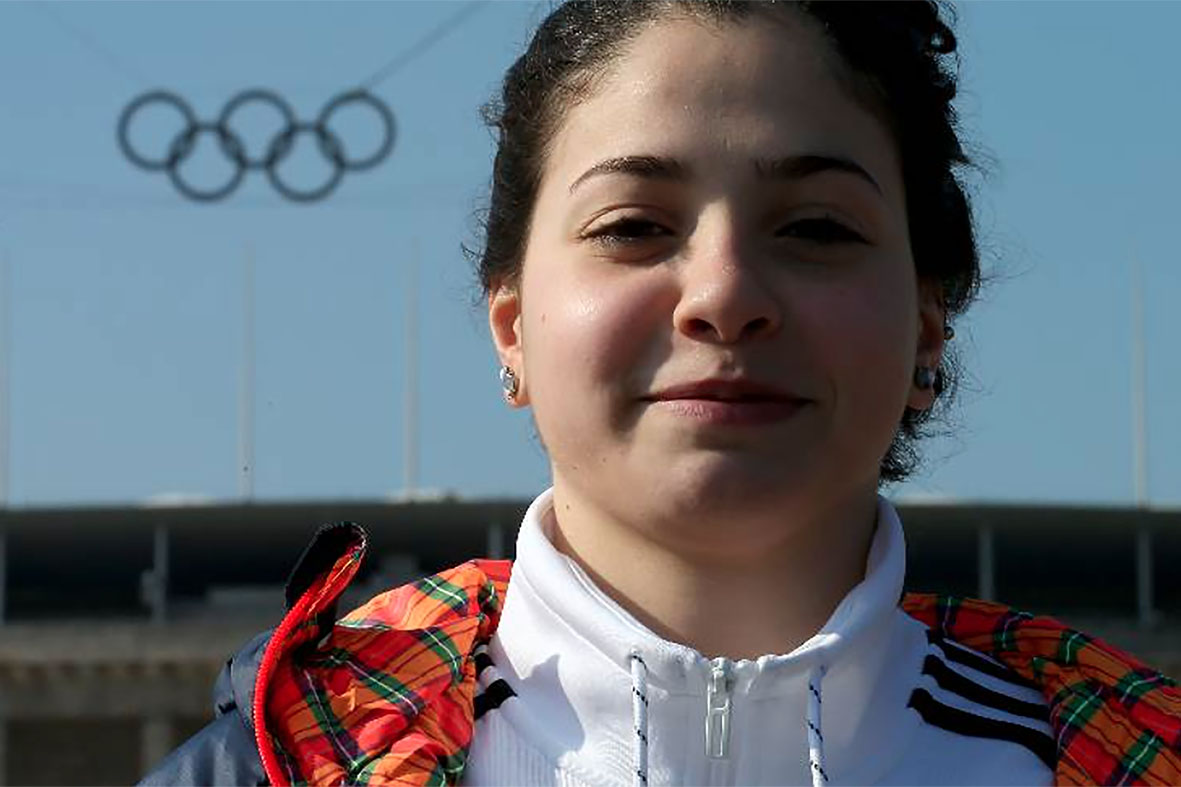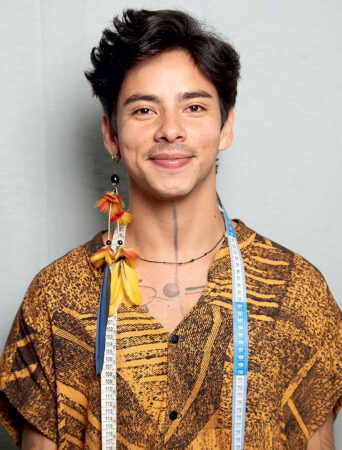 Syrian swimmer
Syrian swimmer Refugees team is celebrated in Rio
(Rio de Janeiro, brpress) - In a week that the war in Syria has shocked the world again after the image of a five years old Syrian boy covered in dust and blood rescued from a bombed-out building have gone viral on social media, stories of the first olympic refugees team are worth being told.
(Rio de Janeiro, brpress) – On the contrary of what has been happening in some European borders, the team of 10 refugee athletes competing at Rio 2016 were welcomed with cheers, music and dancing when they arrived in the Olympic Village, in the beginning of the Games. Hundreds of athletes from other countries were there to greet the refugees at a special welcoming ceremony, joined by media from all around the world.
In a week that the war in Syria has shocked the world again after the image of a five years old Syrian boy covered in dust and blood after being plucked from a bombed-out building in Aleppo have gone viral on social media, provoking widespread outrage and upset, Rio 2016 refugees team is worth being reviewed since it is the first time in the Olympiad history that citizens from different and conflict-torn countries are united under the Olympic flag.
Syrian swimmers
The team’s members stories call the world to act urgently and widely support of peaceful conflicts resolution as the only possible way to end up all the suffering such war brings. The 25-year-old Syrian swimmer Rami Anis was one of the most enthusiastic members of the refugee team at the welcoming event – even dancing a bit of samba. Anis had to leave his hometown of Aleppo, in order to escape the onset of the Syrian war.
“Swimming is my life. The swimming pool is my home”, says the Anis, who went to Istanbul, where he continued training while having had no idea that he would not return. “The small bag I took had two jackets, two t-shirts, two trousers. I thought I would be in Turkey for a couple of months and then return to my country”, he remembers. Anis left Turkey aboard an inflatable dinghy and made his way across to the Greek island of Samos.
Eventually he reached Belgium where he was granted asylum in December 2015. Five years on and Anis, who now trains in Belgium with former Olympic swimmer Carine Verbauwen, competed in the 100m butterfly in Rio 2016. “It has been a great feeling to be part of the Olympics”, he said after being named in the 10-strong team, which includes athletes from South Sudan, Ethiopia and Democratic Republic of Congo [Congolese judoka Popole Misenga defeated Indian Avtar Singh in a preliminar contest].
Also from Aleppo – a ravaged city that has since become emblematic of the horrors of the war in Syria –, another Syrian swimmer, Yusra Mardini has been hugely acclaimed in Brazil after winning worldwide recognition when she helped save 20 refugees from drowning in the Mediterranean sea when they fled from Turkey to Greece. “All the people on the boat were praying. It was quite hard to think that you are a swimmer and you might end up dying in the water”, Mardini reminds.
Saving lives
During the sea crossing, the motor on their dinghy suddenly stopped. The tiny vessel meant only for six people was at risk of capsizing, with 20 desperate passengers huddled on board. Mardini, her sister and one other woman took to the water and pushed the boat until it reached the shore, saving the lives of everyone. “Only four out of 20 on the boat knew how to swim,” says Mardini, who represented Syria at the 2012 FINA World Swimming Championships. “It would have been shameful if the people on our boat had drowned. I wasn’t going to sit there.”
Following her act of heroism, last September Mardini arrived in Berlin where her swimming talent was soon recognised by Wasserfreunde Spandau 04, one of the city’s oldest swimming clubs. After excelling there, earlier this month she was named as one of the 10 athletes who formed the Olympic refugee team. she says that she has not taken her journey for granted or forgotten those who have supported her on her way. “Of course it will be an honour to compete for Syria. But the fact is that over the next four years there will certainly be more than the 65 million refugees currently in circulation if the war won’t be stopped”, she says.
New life
By participating in the Games, Yusra Mardini hopes to be a source of inspiration and hope for Syrians and other refugees. “I want to show everyone that after the pain, after the storm, come calm days”. This was what twelve-year-old Hanan Khaled Daqqah, another Syrian refugee, found in São Paulo, Brazil, where she has been living with her family and has begun a new life. Daqqah said she felt “like a Brazilian” after carrying the Olympic flame on the first day of the Rio 2016 Torch Relay on May.
Daqqah’s family fled their home in Idlib, in the north west of Syria, after her father was imprisoned and threatened for helping friends escape the war-torn country. After living for two and a half years in the Zaatari refugee camp in Jordan, the family started a new life in São Paulo, Brazil’s biggest city where with a population of 20 million, since 2015, under a humanitarian programme run by the Brazilian government. The government said about 8,000 special visas have been issued to Syrians under the initiative.
Better future
The petition #ComOsRefugiados (#WithTheRefugees) has been circulating on Brazilian social media asking the governments to take action with responsibility and solidarity in order to end up the refugee crisis. The petition, stressing that each refugee children must have access to education, each family must be granted a safe place to life and that each refugee must have a chance to work or/and learn new abilities, will be handed at the UN General Assembly in New York, on September 19th.
The Rio 2016 unprecedented refugee team is a joint initiative by the International Olympic Committee (IOC) and the United Nations Refugee Agency (UNHCR). The IOC is providing a full support team and the athletes will march at the opening ceremony under the Olympic flag. IOC president Thomas Bach said he hopes that the first Olympic refugee team will be “a symbol of hope” to other refugees and a “signal to the international community”, raising awareness about the severity of the global refugee crisis.




